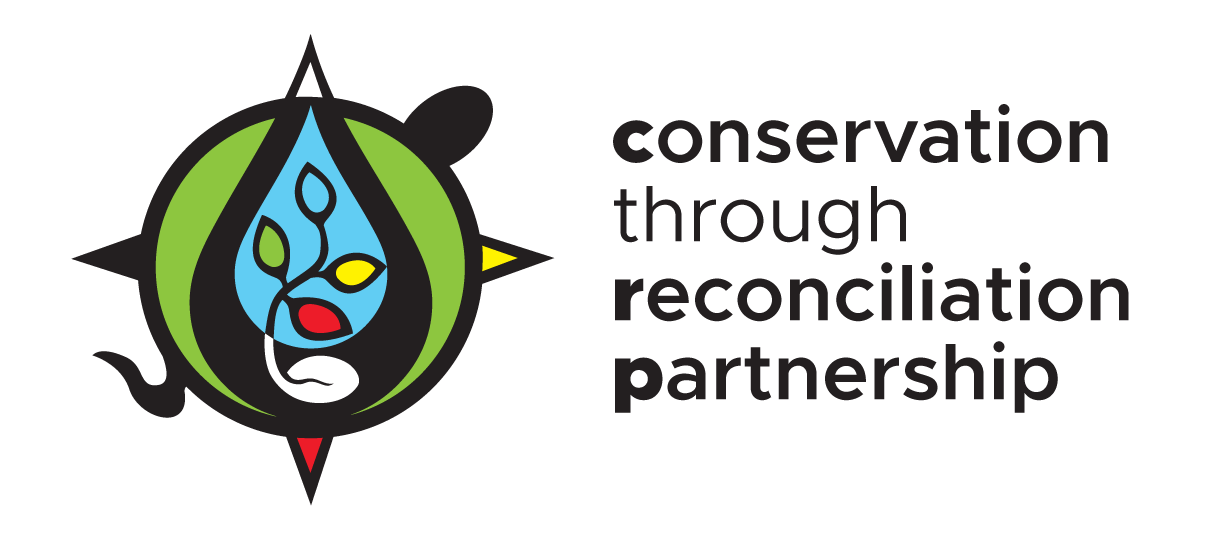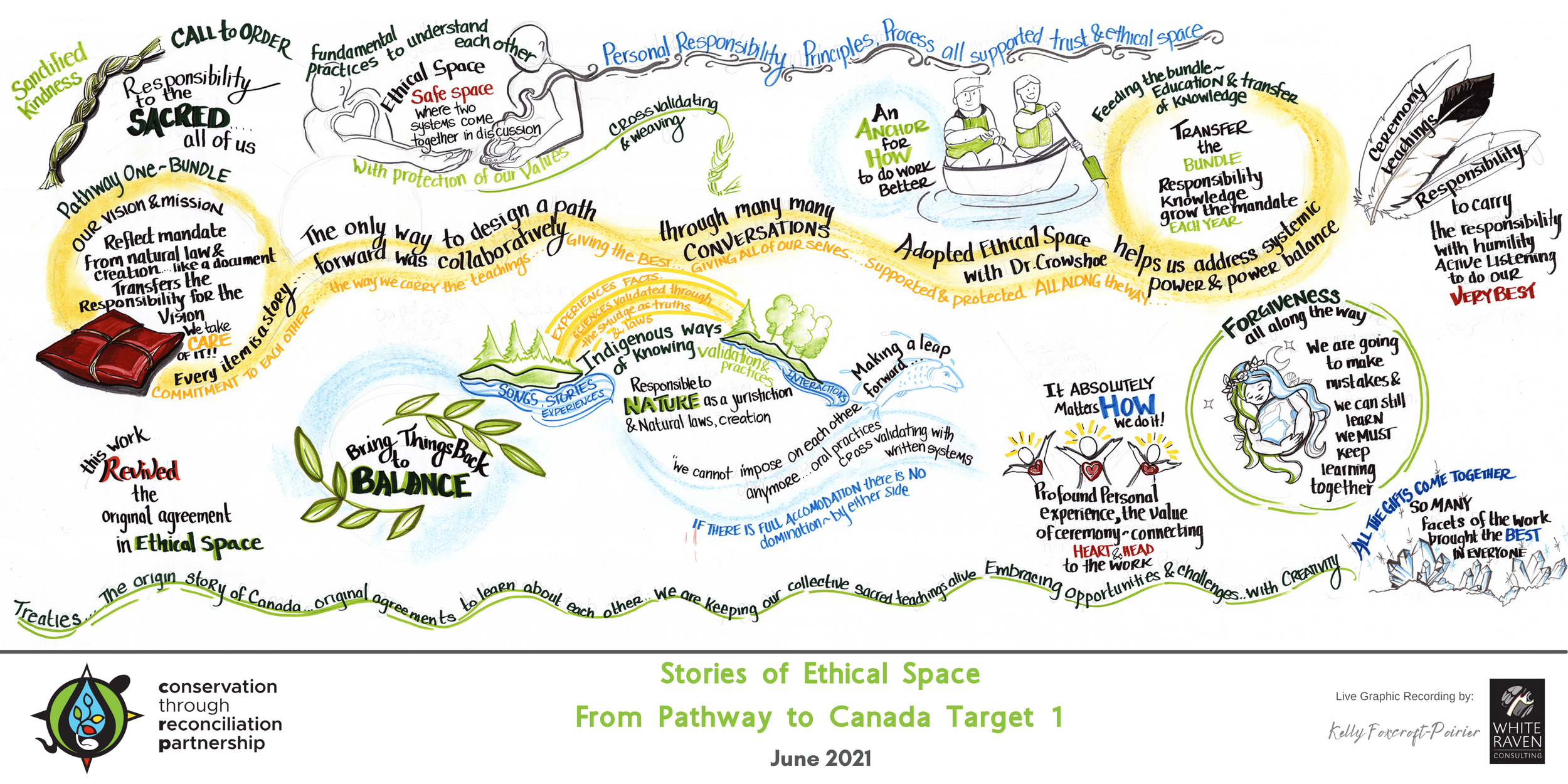About the Conservation through Reconciliation Partnership
The Conservation through Reconciliation Partnership (CRP) is an Indigenous-led network that brings together a diverse range of partners to advance Indigenous-led conservation, including Indigenous Protected and Conserved Areas (IPCAs) and to transform the conservation sector in Canada. The CRP is a collective of Indigenous leadership, environmental conservation organizations, academic institutions, scholars and researchers, and communities acting on and building from the recommendations set out by the Indigenous Circle of Expert’s report We Rise Together.
Our Approach
The Conservation through Reconciliation Partnership aims to:
Support the conservation sector to take up recommendations set out by the Indigenous Circle of Experts in the We Rise Together report.
Establish and contribute to our three legacy projects. These projects will support Indigenous Nations and governments with the development and implementation of Indigenous Protected and Conserved Areas (IPCAs).
The CRP is co-hosted by the IISAAK OLAM Foundation, the Indigenous Leadership Initiative, and the University of Guelph. Through representation on the partnership’s Leadership Circle, the IISAAK OLAM Foundation and the Indigenous Leadership Initiative provide strategic guidance and identify opportunities to support Indigenous-led conservation in Canada and beyond. The University of Guelph coordinates research, administration, and knowledge mobilization.
Our Guiding Principles
The CRP strives to embody the principles of Two-Eyed Seeing and Ethical Space. We are grateful to Mi’kmaq Elder Albert Marshall from Eskasoni for bringing the principle of Two-Eyed Seeing to the partnership. We are grateful to Danika Littlechild for introducing Ethical Space to the partnership. Ethical Space is a concept adapted by Cree scholar Willie Ermine of Sturgeon Lake First Nation and Blackfoot Elder Dr. Reg Crowshoe from Pikani Nation.
Practicing Ethical Space cultivates deep respect for different knowledge systems and worldviews. It requires entering into dialogue transparently, honestly, and authentically. Ethical Space cannot be cultivated without Two-Eyed-Seeing, which is the practice of learning to see using two knowledge systems, drawing on both to guide discovery and problem-solving. It is within this Ethical Space that all collaboration, mutual support, and multi-directional knowledge sharing occurs.
The Conservation through Reconciliation Partnership is committed to ensuring that Indigenous and non-Indigenous knowledge systems are recognized, respected, and braided with guidance from Elders, knowledge holders, and youth.
Our partnership is based on reciprocal exchange, mutual responsibility, relationship building, and recognition of rights. We strive to ensure that all projects undertaken by the CRP are relevant, accessible, and meaningful for communities, while also mobilizing lessons learned for the benefit of the broader Indigenous conservation leadership movement.
The guiding principles of Ethical Space and Two-Eyed Seeing animate our partnership and guide intercultural relationships between Indigenous and non-Indigenous Peoples.
To learn more about these principles, please visit these resources below:
Ethical Space:
Webinar: Traditional Ecological Knowledge (2019)
Video: What is Ethical Space? (2020)
Audio and Illustration: Stories of Ethical Space in the Pathway to Canada Target 1 (2021)
Paper: Enacting and Operationalizing Ethical Space and Two-Eyed Seeing in IPCAs and Crown Protected and Conserved Areas by Danika Littlechild and Colin Sutherland (2021).
Two-Eyed Seeing:
Video: Global Symposium - Albert Marshall - Two-Eyed Seeing (2019)
Video: Etuaptmumk Two-Eyed Seeing with Albert Marshall. (2020)
Webinar: Two-Eyed Seeing in Conservation Practice (2022)









